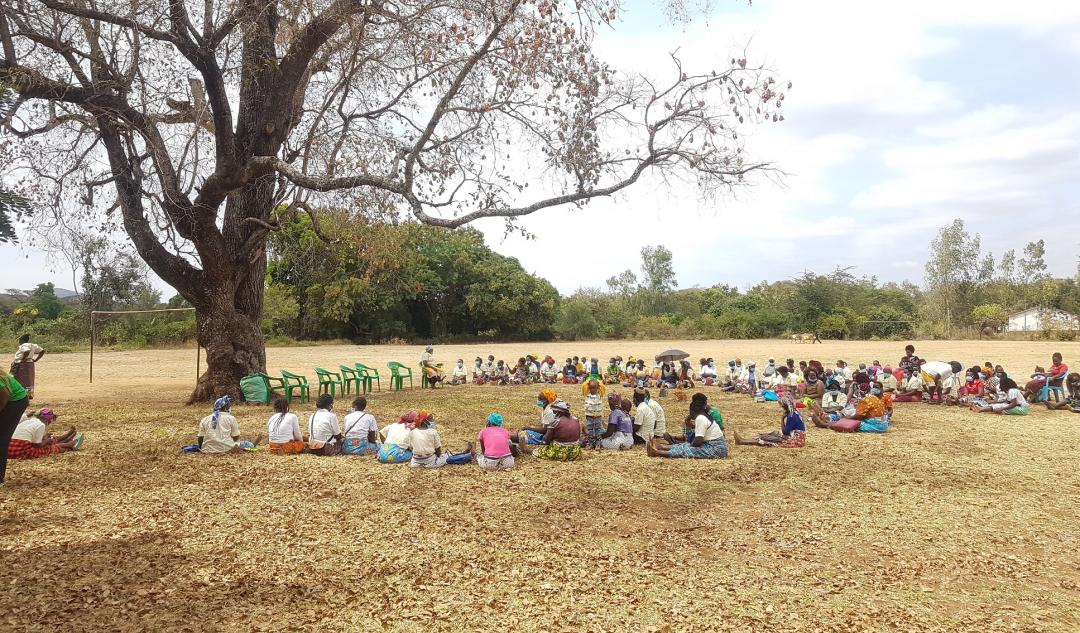Making nutritious food accessible while improving farmer incomes in Kenya
Stawi Foods and Fruits specializes in providing nutritious composite porridge flour blends to Kenyan families. It is working to address hidden hunger among children by processing ancient grains and dried fruits into fortified flours that are rich in vitamin A, iron, zinc, and other essential minerals. Stawi is in collaboration with Inclusive Business Sweden and Hidden in Grains (AB) to introduce hydrothermal processing technology in Kenya, whereby traditional foods can be naturally enriched with iron, zinc, and other essential minerals at a low cost and then used to process nutritious, appealing, and affordable feeding products for babies between six and 23 months old.
What drove you to start your business? What were the needs and opportunities you were responding to when you founded Stawi Foods?
I was born and raised in Kenya; I am a third born out of four siblings. When I was growing up, my parents always encouraged us to do something meaningful with our lives, to leave an impact and a legacy. Both my parents are entrepreneurs and I chose to follow that path despite graduating with a degree in Law and later a Master’s in Business Administration. I launched Stawi Foods (my third business) in 2012, with a mission of making high-quality and nutritious food accessible to more people, while elevating our communities and making the world a healthier place. Stawi also aims to improve incomes for smallholder farmers and food security in Kenya.
Why did you decide to specialize in porridge flour blends in particular? Who are your main consumers?
Porridge is a traditional hot beverage that is consumed by over 50 per cent of Kenyan households. The consumption is higher in infants aged six months and above that are weaning from breastmilk. The market size of porridge in Kenya is US $45 million annually and we have carved out a niche of processing tasty, precooked fortified porridge with local taste preferences for Kenyan consumers. Our main consumers are infants, school going children, women and the general population.
Stawi purchases produce from banana farmers at more than the market rate. How do you enable farmers to earn higher incomes while also providing affordable prices on your products for the local market?
We pay banana farmers on a kilogram basis as opposed to the ‘eye-balling’ method used by intermediaries to determine the price without taking into account the actual weight. This way, farmers earn 15-20 per cent higher by selling to Stawi. Banana is an ingredient in our fortified porridge flour and we factor in the cost of production to set our selling price to customers.

You also run an incubation program for startups, using your facilities. How do you support these startups?
Due to the high rate of unemployment in Kenya, many women and youth opt to start their own businesses since jobs are scarce. Most startups lack expertise and processing equipment to start their businesses to process fruits, spices, vegetables, natural ingredients and flour. As a beneficiary of industrial incubation at our inception phase, Stawi provides incubation to promising women microprocessors. We offer them common manufacturing facilities at Stawi factory and technical support in the specific areas of interest, such as advice on packaging, formulation, food safety and marketing.
The Kenyan government runs an incubation facility in Nairobi, but the facilities have a long waiting line since the startup entrepreneurs are high in number and equipment is limited. Stawi is collaborating with the government incubation center to take in startups on their waiting list and train them in areas of interest. Stawi would like to scale up this initiative to reach more startups in Kenya but we require investment to increase processing lines (for baking, drying, and peanut processing). We are planning a collaboration with Kenyan universities to provide structured business skills training to more startups.
How many of the startups you support are female led? How does your business support women?
Since the outbreak of Covid-19 pandemic, we have supported 20 micro entrepreneurs to start businesses that process mango, coconut, herbs and spices and finger millet flour. All our clients are female entrepreneurs.
How do you measure the impact you create?
Stawi measures both outcome- and output-based indicators for impact, including the following:
- Number of servings consumed by consumers
- Number of jobs created for women and youth
- Nutritional development of sampled/testimonial consumers (weight gain of infants before and after using Stawi products)
- Disruptions in the Kenyan market, for instance, number of competitors that copy what we do
- Number of smallholder farmers reached (60% women and 30% youth) with increased income as a result of our activities
- Percentage increase in crop yield of farmers due to application of Good Agricultural Practices (GAP), Climate Smart Agriculture (CSA) practices and technologies
- Number of women and youth employed by Stawi
What are your plans for the next few years?
In five years, we plan to be in a position to feed one million children every single day, in partnership with food distribution partners. We plan to be distributing our products across Kenya and exporting to other markets. We plan to have a sustainable supply chain that puts farmers first, and to support them with the technology they require to grow food using less resources to counter climate change.
